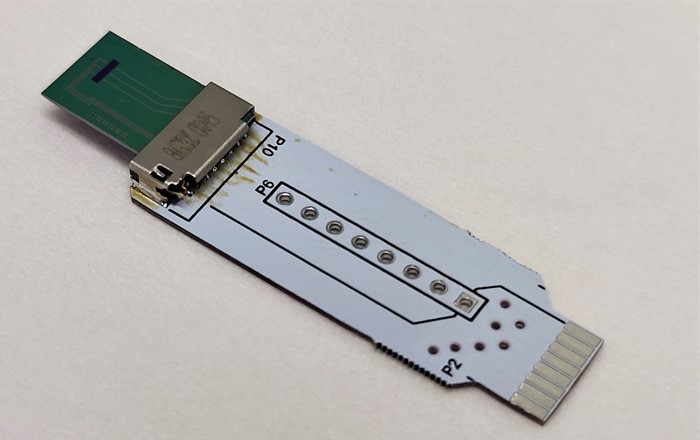
The innovative kit has a multi-analytic probe design that will house various intelligent sensors and will be capable of continuously collecting and processing samples.
Researchers from Swansea University have developed a unique device that can detect COVID-19 in common wastewater.
This new sampling unit will be designed to provide real-time identification of the disease, meaning communities could be alerted if there is a suspected outbreak in their area.
The research, from the Institute for Innovative Materials, Processing and Numerical Technologies (IMPACT), seeks to support authorities with early detection by monitoring wastewater in sewerage. To do this, the research team have adapted existing sensor technology to create a novel unattended, automated, and continuous sampling unit.
The innovative kit has a multi-analytic probe design that will house various intelligent sensors and will be capable of continuously collecting and processing samples. The probe will be positioned in raw sewage, before it is treated, to record COVID-19 viral signature levels. Made from recycled plastic, the device housing is 3D printed and designed to be mass produced.
To date, no standard methods have been established for detecting the virus in wastewater. However, adapting the team’s existing sensor technology means researchers can identify disease biomarkers, including COVID-19, based on a resistance change in the active sensor surface.
Project lead Dr Sarper Sarp comments:
‘The vision is for this system to be fully integrated within the existing Wales sewer network, creating a real-time country-wide surveillance system that is linked via a wireless mesh network. The captured data will be subject to AI based analytics to provide a traffic light system, designating individual suburbs, areas, or regions as red, yellow, or green zones depending on the levels of COVID-19 found.’
The sensors used in the system will be based on existing graphene bio-sensing technology, already used for the successful detection of the hepatitis B virus but recalibrated to detect COVID-19. The fully integrated system will be tested and verified in a laboratory using wastewater samples provided by Welsh Water, in readiness for commercial roll-out.
Dr Sarper Sarp continues:
‘The COVID-19 pandemic has highlighted that knowledge gaps on the scale of viral infection within a population can translate into weeks of delay in taking measures for its effective control – leading to the subsequent knock-on effects for public health and the economy. Already in North Wales we have seen hotspots of activity affecting hundreds of meat factory workers but without the capability of measuring the spread of the virus in real time.
This project will integrate continuous monitoring to create an early-warning sewage surveillance system against COVID-19 outbreaks.’
Minister for Education, Kirsty Williams said:
“Welsh universities have been at the forefront of the response to Covid-19, developing solutions to the numerous challenges the pandemic has presented. Throughout this time, the determination of our talented universities will help ensure we emerge from this crisis stronger and prepared for the future.
“Through our Sêr Cymru Tackling COVID-19 programme, research projects such as this one led by Dr Sarper Sarp at Swansea University may help early prevention of the spread of the virus, with the results potentially being influential to the Welsh Governments Environmental subgroup of TAG and policy leads.
“Investing in new scientific research has always been vital to our universities and to benefit the wider Welsh economy.”
The research team includes Professor Paul Rees, Professor Owen Guy, Dr Sanjiv Sharma and Research Assistants Dr. Ffion Walters, Mr. Jack Smith, and Mr. Louis Giron - with industry partners Biovici.
The project is funded through the Sêr Cymru Tackling COVID-19 programme. The IMPACT operation is part-funded by the European Regional Development Fund through the Welsh Government and Swansea University.
